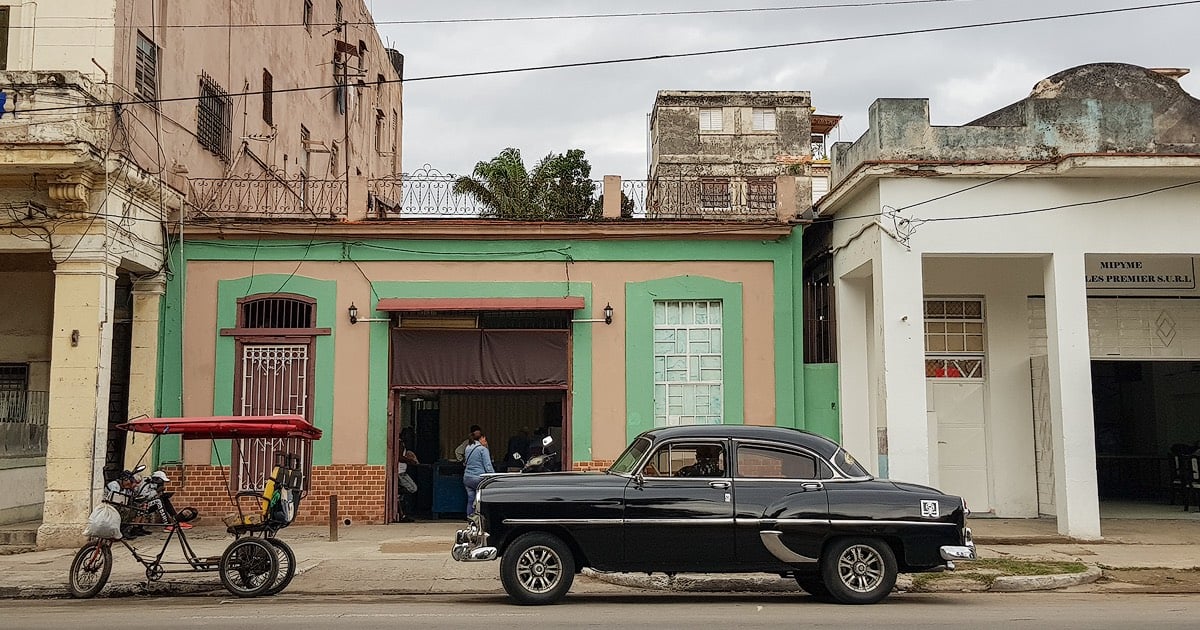
Related videos:
The Cuban regime plans to temporarily cap the prices of six essential food products: chicken, oil, pasta, powdered milk, detergent, and sausages. This was announced by Deputy Finance Minister Lourdes Rodríguez during a recent meeting with representatives from small and medium-sized enterprises (Mipymes) and the General Directorate of Imports of the Ministry of Foreign Trade. The entrepreneurs were selected through the Tax Administration. "This was the way to reach each of you," Rodríguez stated.
In that conversation, which CiberCuba has obtained access to, the deputy minister announced that they will cap the retail price of "six items" that were chosen, as she mentioned, through a survey in which ground beef closely followed sausages. Ultimately, they settled on the latter because ground beef can have various sources with significant price differences among them.
In this way, the maximum retail price of chicken (a package of thighs and drumsticks) would be set at 680 pesos per kilogram (310 pesos per pound); powdered milk would be sold at a maximum of 1,675 pesos per kilogram; pasta (such as spaghetti, etc.) at 835 pesos per kilogram; sausages at 1,045 pesos per kilogram; powdered detergent at 630 pesos per kilogram; and soybean oil at 990 pesos per kilogram. These prices, the deputy minister clarified, "will be made public prior to their implementation."
The Deputy Minister of Finance asserts that these prices have been determined after analyzing the import costs declared by private importers in the second half of 2023 and the first quarter of 2024. This is a highly controversial point for representatives of small and medium-sized enterprises, who understand that in an unstable international context, where prices fluctuate significantly, it is challenging to adapt to what the government proposes, despite some expressing their willingness to do so with the population in mind. However, they highlighted three structural problems in the Cuban economy: the distortion of the exchange rate, the tax burden on SMEs, and the shortage of fuel that complicates the transportation of goods within the island and even makes it difficult to remove containers from the Port of Mariel.
In any case, the vice minister presented them with the narrative that these price caps, which are not new on the island, are being implemented now to curb the rising pace of prices in the economy. However, Rodríguez clarified that this is a temporary measure because the country's pricing policy is moving towards what she calls "price decentralization," which is nothing more than respecting market laws, where prices adjust themselves based on supply and demand.
In theory, the measure is implemented to also curb inflation, which closed at 31% in Cuba in May; nearly ten times higher than the approximately 3% seen in Europe and the United States during the same month.
To justify why products like oil, instead of decreasing in price with price caps, are being sold at higher prices, the deputy minister explained that this is because "they may be relying on stocks that were purchased at lower prices at a certain time."
Although he admitted that it is difficult to sell products at the same capped price across the Island, regardless of transportation costs (it's not the same to transport goods from Havana to Guantánamo as it is to distribute them in the capital), he assumed that this issue does not have a solution "for tomorrow."
It was also acknowledged in that meeting that there is a shortage of products such as chicken, oil, and powdered milk, which as of today "cannot be found on the Island."
Cuban entrepreneurs are concerned about transportation issues and the payment of VAT (Value Added Tax), but they also wanted to know whether the stores in MLC will continue to compete with them by offering higher prices, as is the case with many products today.
At the beginning of the meeting, the Deputy Minister of Finance referred to the new resolution that stipulates that micro, small, and medium-sized enterprises (Mipymes) supplying state-owned companies cannot profit more than 30% in their commercial transactions. This regulation, already published in the Official Gazette, establishes, in official jargon, a maximum profit margin of thirty percent (30%) in the economic contracts between state entities and non-state management forms.
Clearly, the government does not present this as a limitation for small and medium-sized enterprises (Mipymes) but rather for state-owned companies. "The entry for non-state entities is not restricted; it is the spending of state enterprises that is limited," said the Deputy Minister of Finance, assuring that in 2023, state companies paid 10 billion pesos to Mipymes, and by May, that figure was already around 4 billion pesos. If this trend continues, the state would end the year with 12 billion pesos in purchases from the private sector.
This regulation, which limits the profits of SMEs to 30%, will come into effect on July 1st.
Filed under: